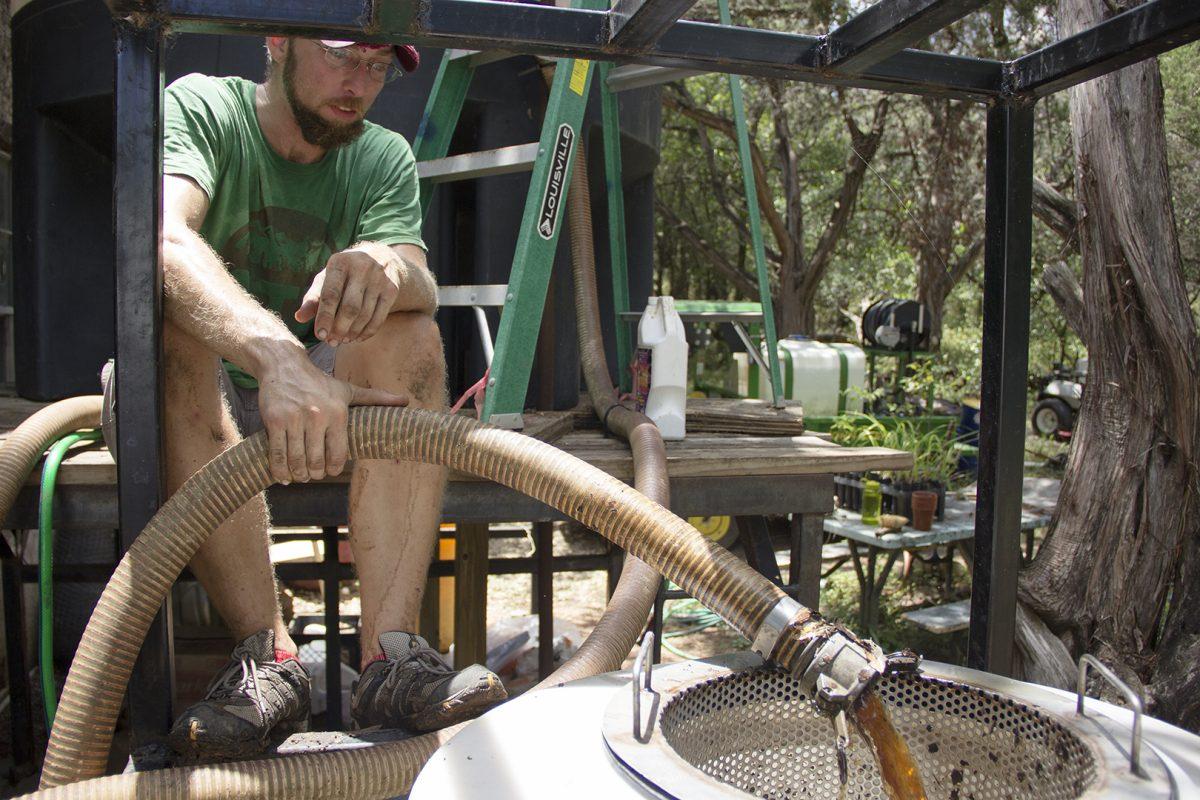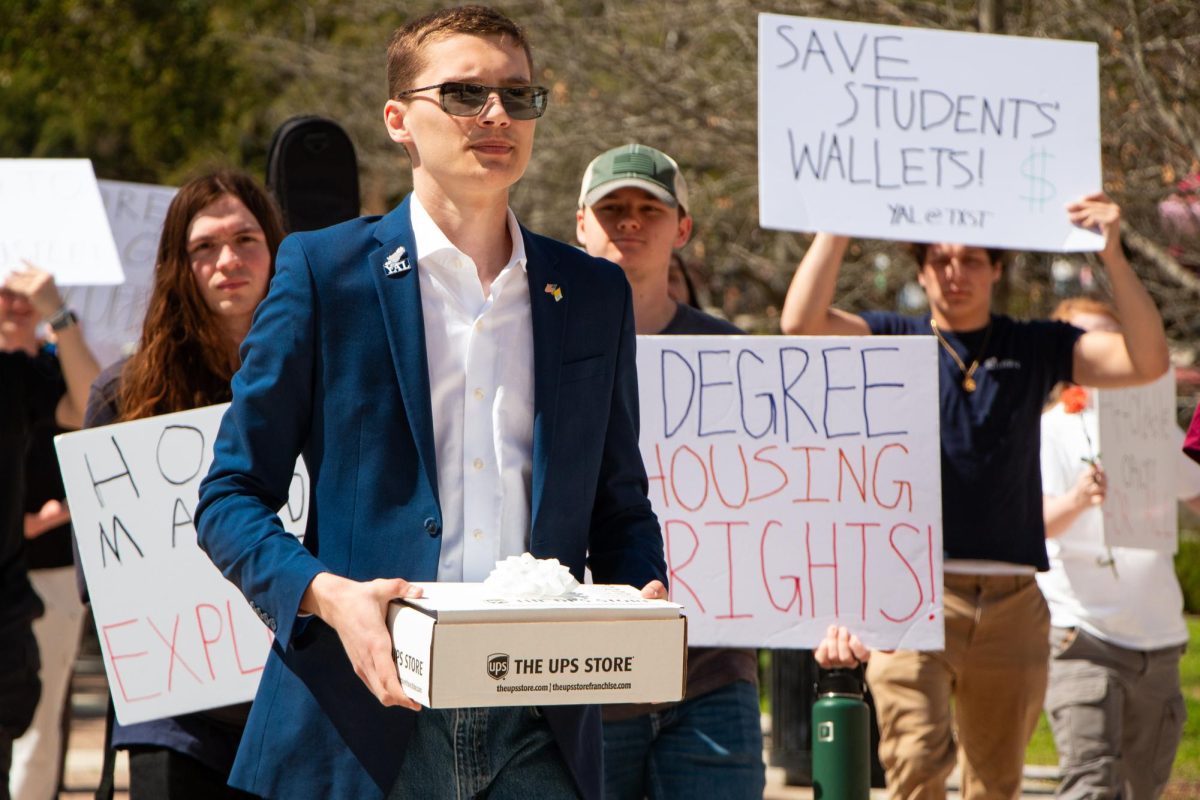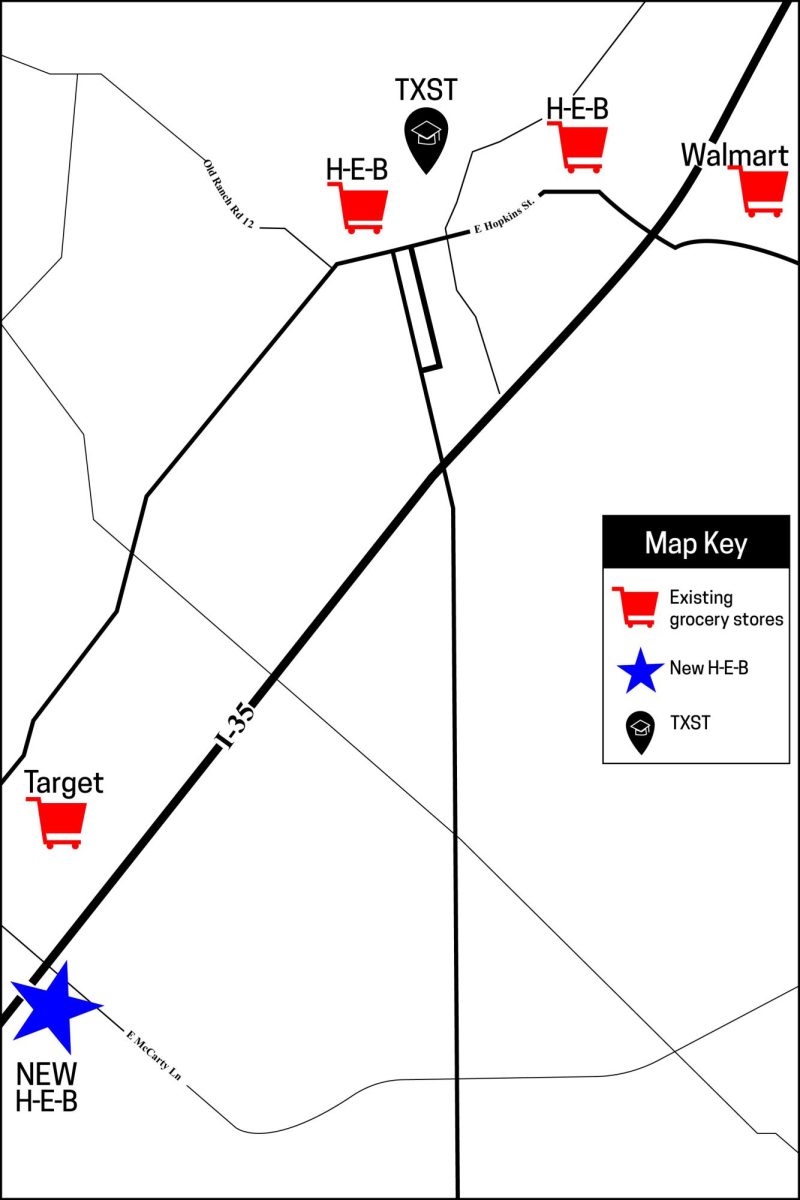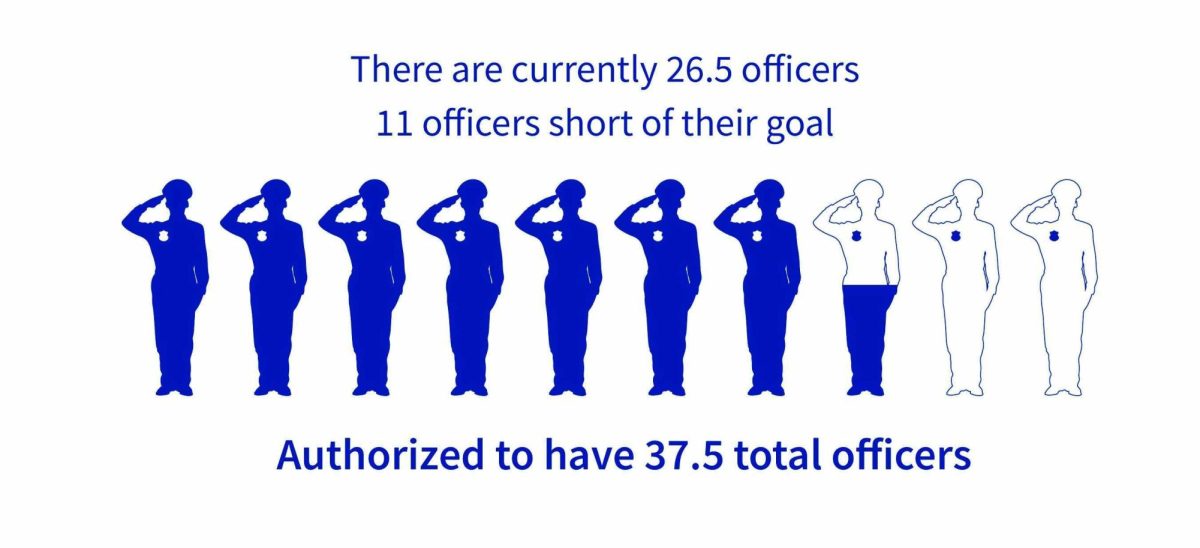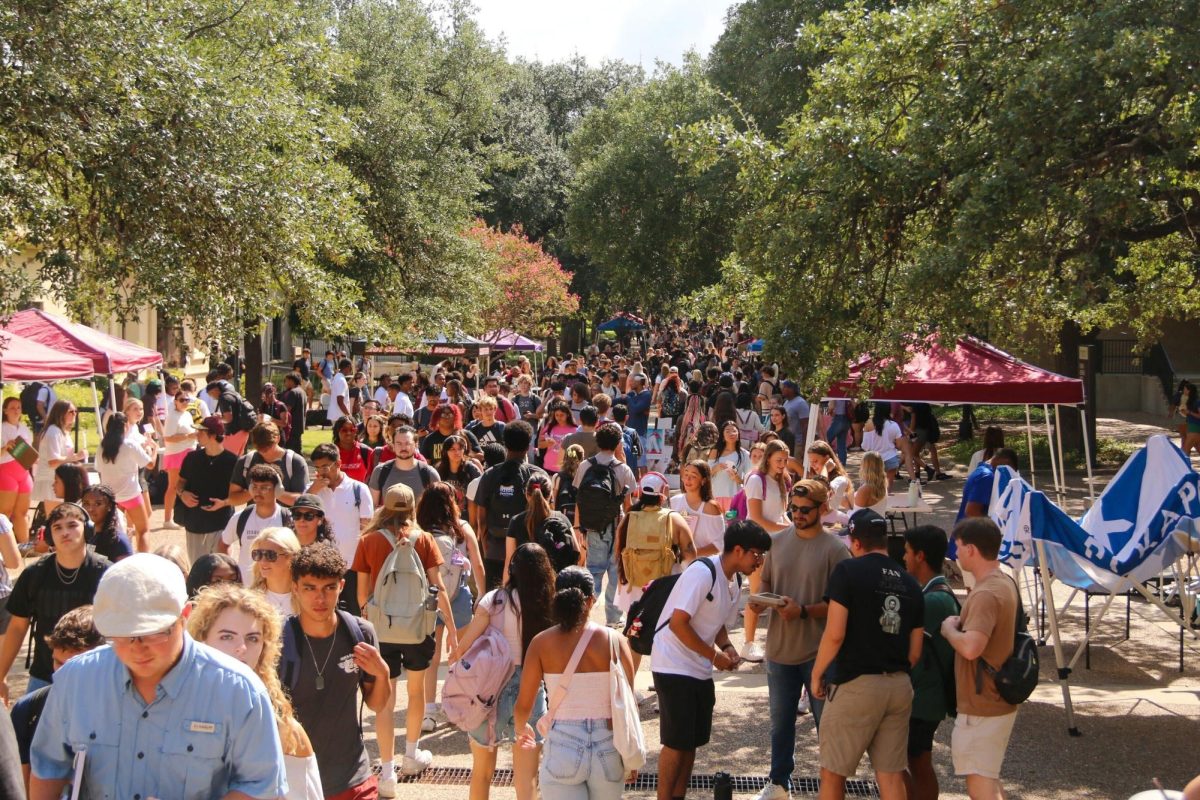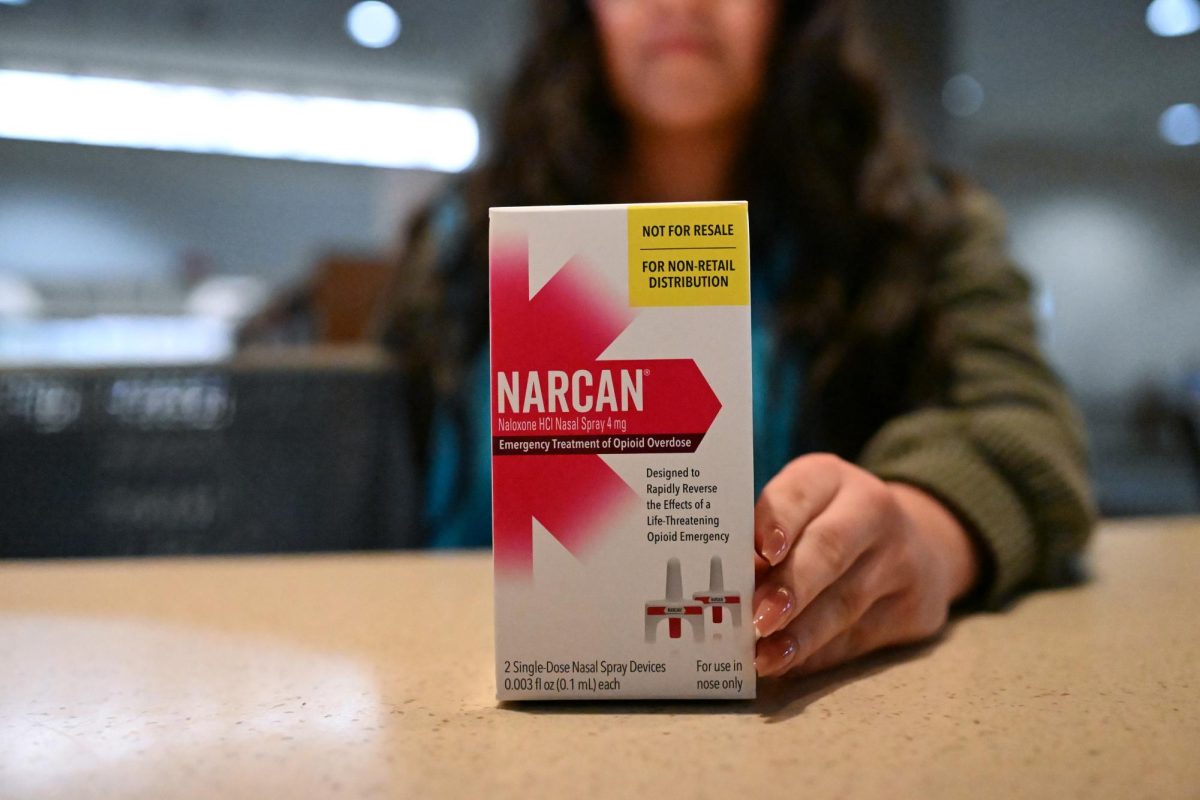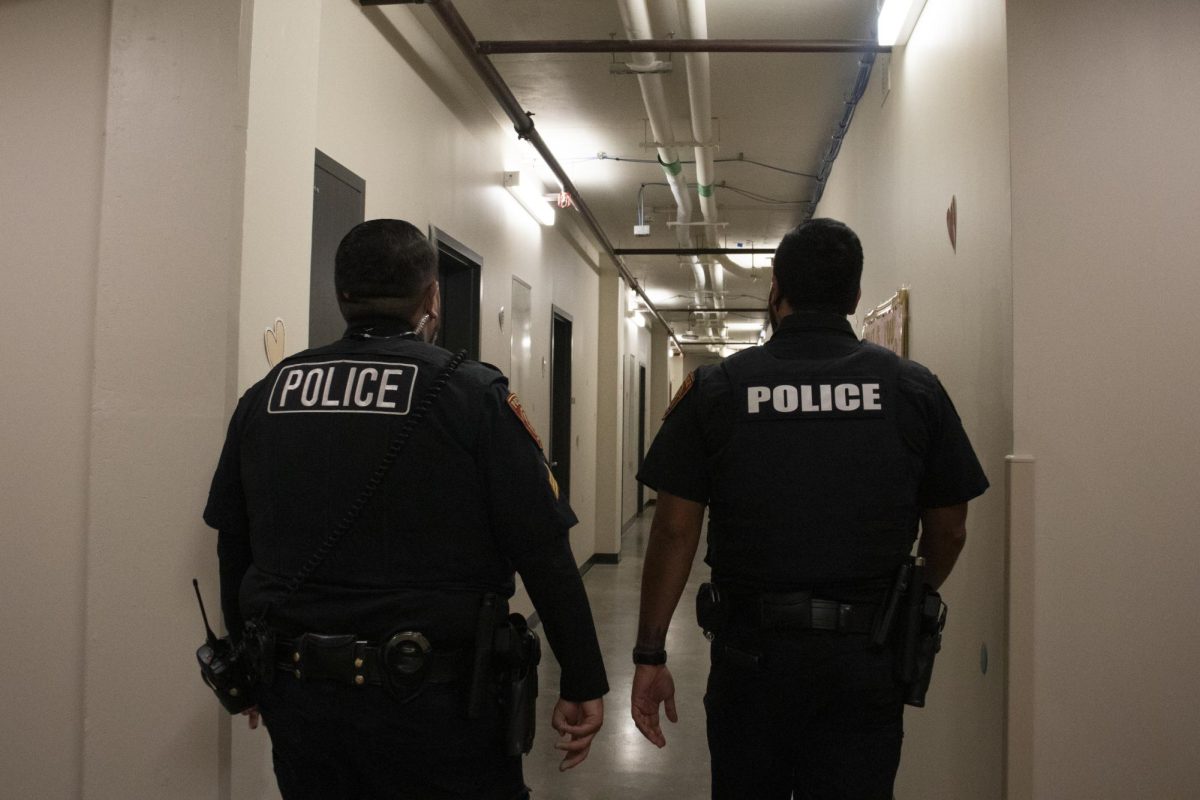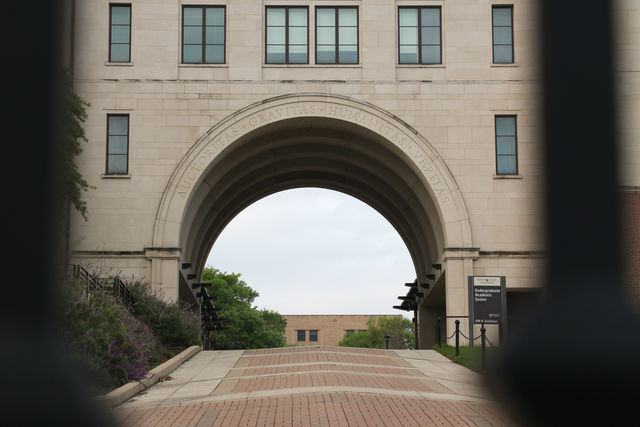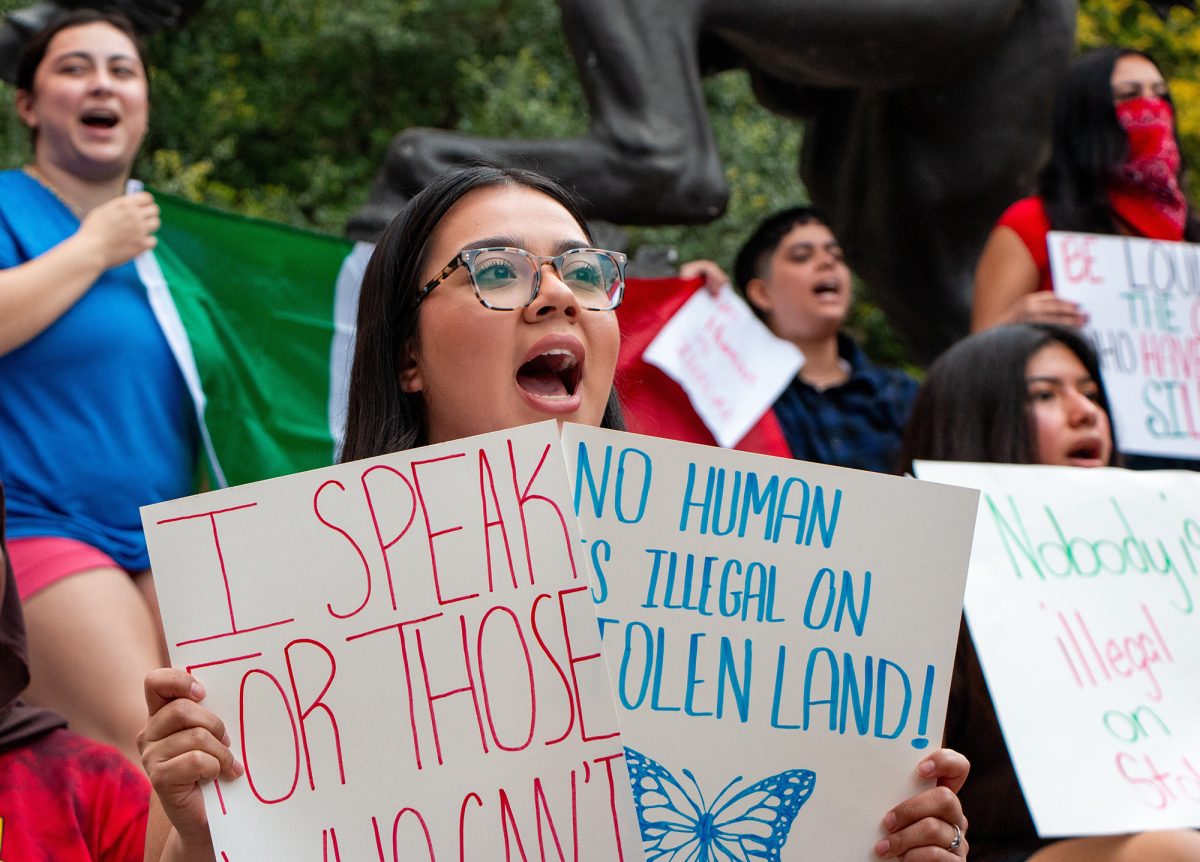The on-campus composting program, Bobcat Blend, has been reducing the amount of organic waste discharged from campus, while educating the community on the value of composting through research. Despite the benefits, a lack of funding threatens to shut down the program.
Bobcat Blend has not received any funding from the Environmental Service Committee since 2015 and has since struggled to maintain their chapter on campus. Unlike other university compost programs who are merged and funded in part through the home departments or the Facilities Department, this organization is entirely economically self-sustaining.
The compost created by the program is reused as potting mix in the greenhouse and gardens on campus. Some of it is also sold to the community or used in labs.
Claudia Gasponi, general studies senior and Student Goverment senator representing the University College, is a former member and student manager of Bobcat Blend. Gasponi advocated for legislation that would bring the program consistent funding.
“Besides one local restaurant that pays for Bobcat Blend’s waste management services, Bobcat Blend is entirely grant-funded. That means that for all the money Bobcat Blend has, their management and coordinator Tina Cade has had to apply to receive,” Gasponi said. “This method of funding is not reliable and sometimes results in periods of time where one grant has been exhausted and the next has yet to be awarded. Waste management programs need consistent funding to maintain operations.”
According to the 2015 ESC Bobcat Blend report, Bobcat Blend has received a total of $767,004.97 from grants and contracts, since the program’s creation in 2006. The ESC has given $136,113.59 over the last six years and for every dollar the committee gives, other internal and external grants contribute around four to five dollars. This inconsistent method of funding has lead the management to find other ways to support their program, like through the generation of sales by selling student-grown plants from the greenhouse.
Tina Cade, agriculture professor, is the coordinator for Bobcat Blend and believes the program is still lucky to have been able to continue its work despite the low funding.
“The Environmental Service Commitee funds 20 percent of our total funding. Although our operations hits all of the issues the ESC wants to address, there are laws that do not allow it to provide us with consistent funding,” Cade said. “Therefore, we must always come up with new projects to try and qualify for more money.”
The City of San Marcos placed sanctions on places that improperly disposed of their waste, which prompted the creation of Bobcat Blend in 2006, when the university cafeterias were charged for flushing food waste down the drain.
“Once I became a senator, the first initiative I put forth is consistent funding for Bobcat Blend,” Gasponi said. “Myself and a few other senators are working on legislation to fund Bobcat Blend permanently but the program is running out of time. The current ESC has rejected Bobcat Blend’s most recent application for funding under the claim that the only students who benefit from the program are the employees.”
In order to encourage more funding, the management has been working to document the value of the program by highlighting the research studies done there. It has also been offering master composting classes for the San Marcos community and is currently working on establishing a Master Program.
“I feel that we are extremely lucky to have been receiving some funds since 2009,” Cade said. “However, most of our money goes towards maintaining our equipment, which doesn’t leave us with much. It is also not easy to find students who are willing to work with waste. If the program was to be shut down, it would take half a million to start it back up. It’s a model program that I don’t want to end.”
Bobcat Blend is expected to be at the next ESC meeting on Nov. 30th to appeal for more funds.
Categories:
Composting program faces fund cuts
November 29, 2017
Kevin Walsh, graduate student manager of Bobcat Blend, guides a hose into the mixing chamber. Walsh and his team brew compost tea once every two weeks.
Photo by Sandra Sadek | News Reporter
0
Donate to The University Star
Your donation will support the student journalists of Texas State University. Your contribution will allow us to purchase equipment and cover our annual website hosting costs.
More to Discover


